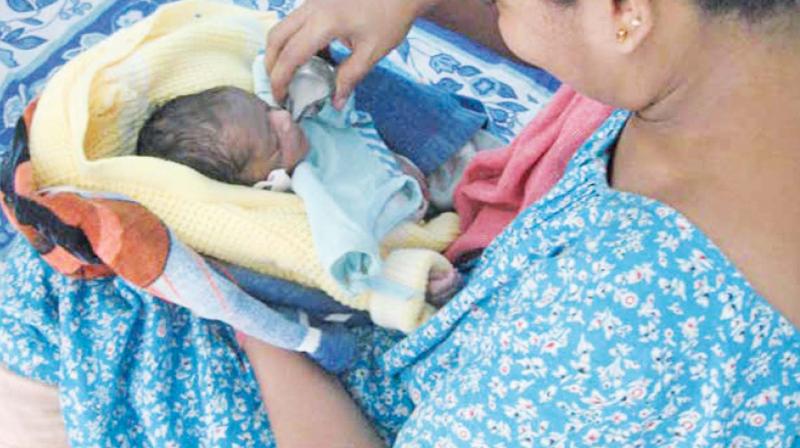Chennai: Learning to deal with pre-term babies
A majority of mothers who have pre-term babies struggle with insufficient or no lactation.

Chennai: According to WHO data of 2010, India has the highest number of pre-term babies. Around 35.20 lakh babies are born premature every year in India - thrice the numbers in China, which stand at 11.72 lakh.
“The rate of prematurity is increasing across the world because of various factors like change in lifestyle, having babies at a later stage in life, and even environmental changes. The reason we chose to set up our plant in India is we want to be committed to the intact survival of pre-mature babies here,” says Saurabh Aggarwal, MD, Neolacta Life Sciences.
Saurabh’s family is from Australia where they had their own dairy farm and an engineering company. Putting the knowledge of the fields together, the company makes their own equipment to provide two mother’s milk-based products - fortifier and the 70 calorie, which help reduce the premature mortality rate.
“This is one of the three companies all over the world, and the only one in Asia that produces mother’s milk-based products. When a baby is born before 37 weeks, or ahead of the term, they are called pre-term babies. Prematurity has nothing to do with the weight, but the term. It is in the last trimester that the babies develop most of their major organs in the womb,” Saurabh explains.
A majority of mothers who have pre-term babies struggle with insufficient or no lactation. As a result, the babies suffer from sepsis, NEC (necrotising enterocolitis) or pneumonia, it was explained.
After collecting data over 18 months, and testing 10,000+ mothers, the company noted that Indian mothers have less calorie count than the western mothers and that is one of the primary reasons for premature births.
“Hence, we developed the 70 calories. Typically, mother’s milk has 55 calories, but a pre-term baby needs more. So, we extract the cream from a large pool of mother’s milk and add it to a smaller quantity to prepare this product. It has around 70 calories and this is given to the babies in NICU as per requirement,” explains Saurabh.
The fortifier ensures the baby gets all the protein it needs, which it would have otherwise got in the mother’s womb. “The babies can consume 160ml-180ml per kg per day. If they have their own mother’s milk then they get 1.8g to 2.2g from 180 ml consumption. But according to global guidelines, a preterm baby needs 3.5g-4.5g pr protein a day. This fortifier helps them get 2.5 times more protein. This is an exclusive mother’s milk diet that derives carbohydrates, proteins and fat from donor mother’s milk,” he says.
The company has tied up with a few private hospitals in Chennai, Bengaluru and Hyderabad from where they receive information about mothers who have excess milk.
They counsel families explaining the benefits of donating mother’s milk. “After counselling, they have to fill a questionnaire. We then conduct a series of tests to rule out all kinds of diseases. So far, we have not had any mother with HIV or Hepatitis B because these tests are done frequently.
“In Chennai, there are five to eight breastmilk banks, but they are unable to meet their own internal requirements. We have visited these banks. While they are state-of-the-art, the storage space is less. We have set up a central processing facility where we have better control over the quality. The blood banks in Chennai can benefit from our fortifier. In the long run we want to tie up with government institutions too,” he says.

